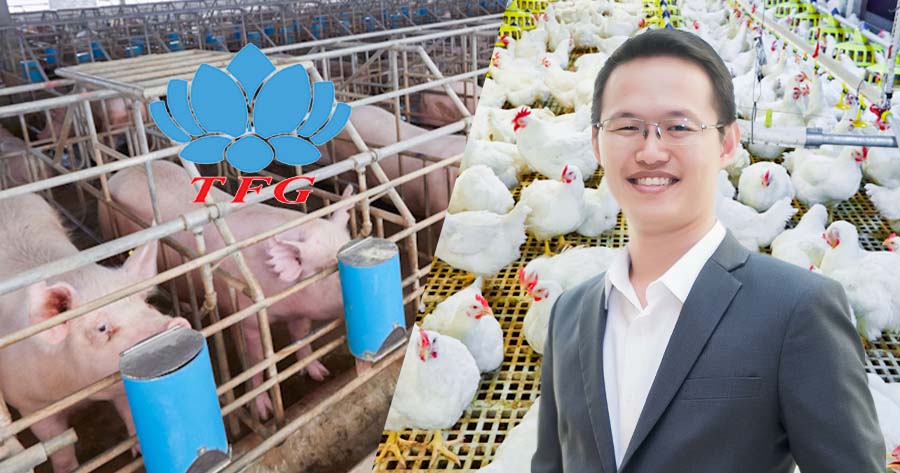Mr. Phet Nuntavisai, Chief Operating Officer of Thai Foods Group Public Company Limited (SET: TFG), informed Kaohoon regarding Thailand’s decision to expand import quota for the U.S. agriculture product, such as corn, barley, and soybean, to support the Thai animal feed industry.
The company viewed that decision as a positive factor that would support livestock business significantly, expecting that cost would go down, both in chicken and swine sectors. The nation’s competitive capability would likely increase, leading to higher export rates in the future.
Currently, TFG’s cost for the animal feed accounted for 70% of the total cost. The main ingredients for the company’s livestock are corn and soybean meal, which the company primarily imports from South America. However, Thailand’s trade negotiation may push the company to increase its soybean meal import from the U.S.
As for corn, Thailand imports this product from neighboring nations, like Myanmar, Cambodia, and Laos, and only at specific periods, such as during every year’s February to August, a time when Thailand did not produce much volume of corn. Since TFG used domestic corn primarily, the announcement to import U.S. corn will benefit the company as the cost and price of this type of corn would drop.
In the second half of this year, the import of U.S. agriculture products should reduce the cost significantly. The momentum for production cost is moving downward, and the import of U.S. agriculture products could reduce the figure even further, positively benefiting TFG.
Another positive factor is the TFG’s 2H25 chicken exports. Its performance is growing due to the expansion of its export volume and price at a positive level. This factor was generated from the bird flu pandemic in Brazil, which should boost the company’s chicken exports in the third and fourth quarter.
As for the plan to expand Thaifoods Fresh Market business to support the company performance, TFG currently has about 500 branches. The company estimated that by the end of the year, that figure will increase to 620 – 630, surpassing the original plan of expanding to 600 branches. This development should create a good momentum that supports the company’s performance in the second half of the year.
As for the Thailand – Cambodia border conflict, TFG admitted that its business has been affected by it, especially the retail shops that are located in the south of the Northeast region. During the curfew period, the company’s 4 – 5 branches were closed for the safety of its personnel. Operations are now returning to normal.




